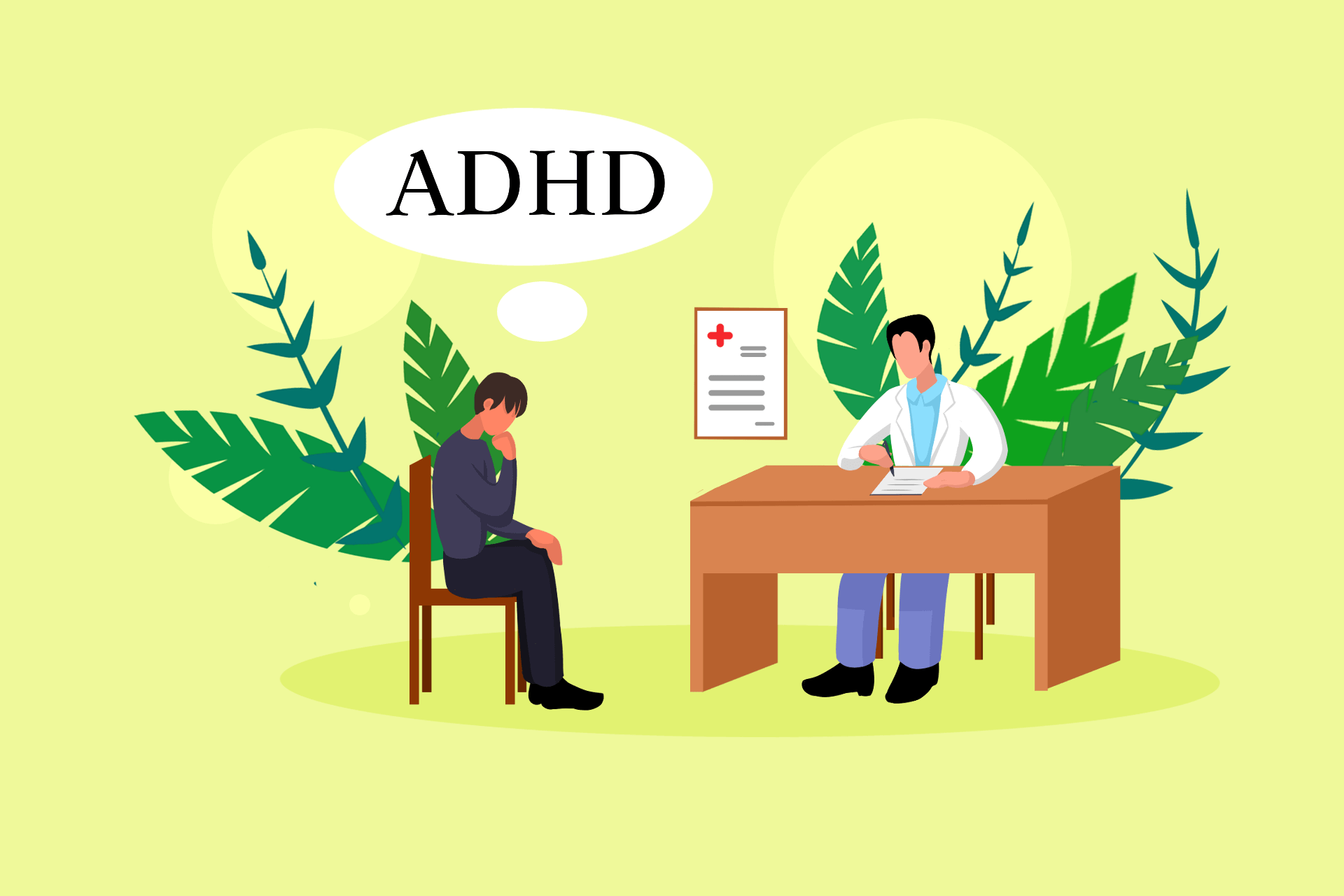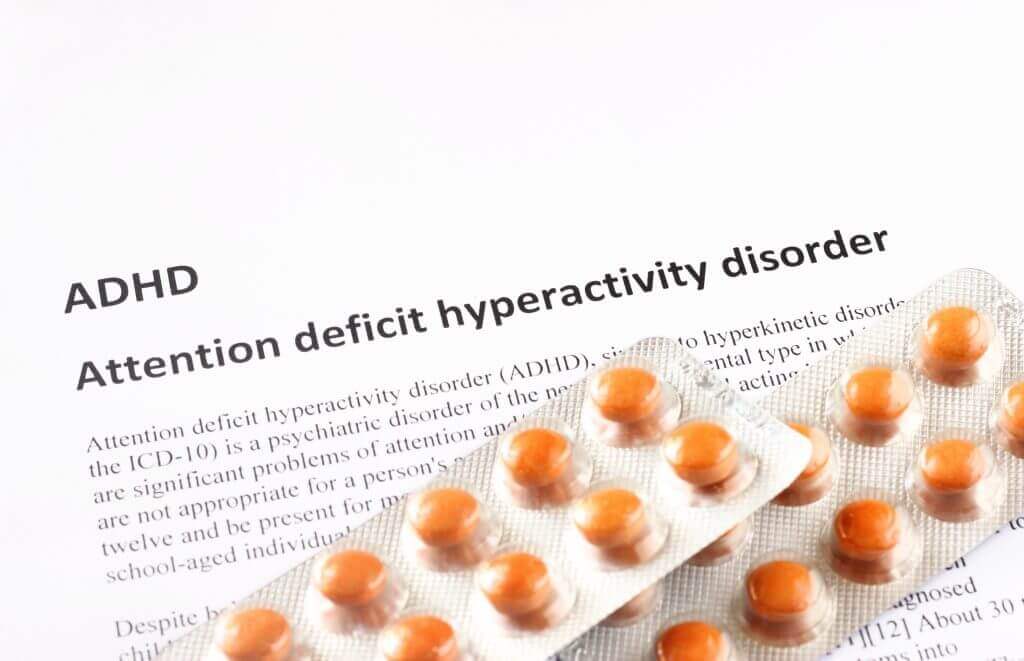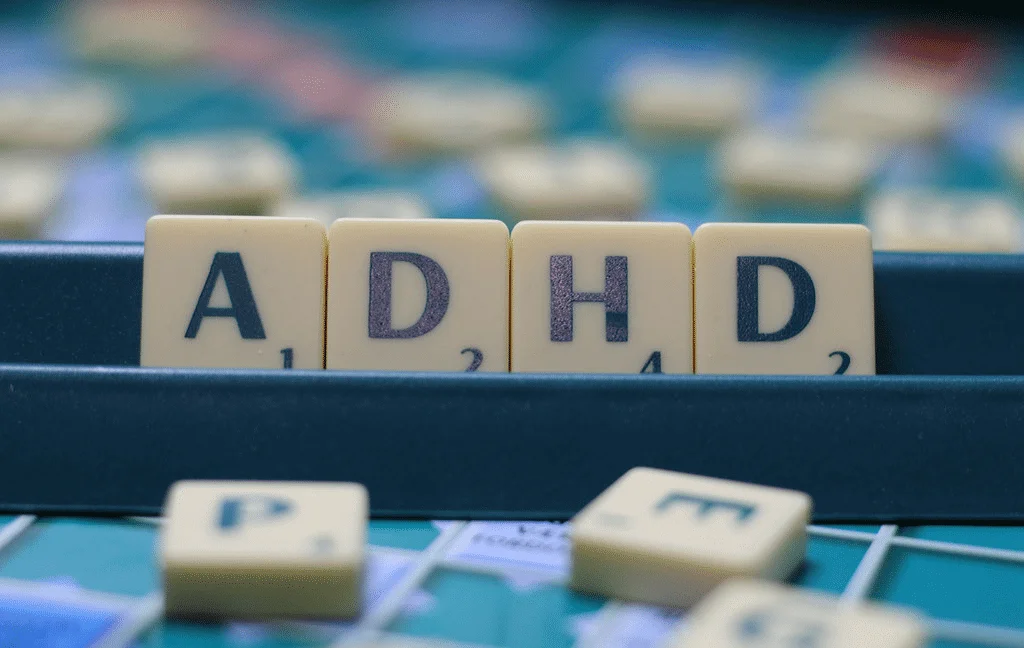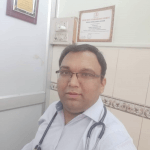ADHD is a serious condition that affects millions of people worldwide. While it can be challenging to live with, the good news is that there are many effective treatments available for it. If you think that you are suffering from it, it is important to see your doctor or healthcare provider to get it properly diagnosed, as well as get an effective treatment plan — if need be.
We know how challenging it can be to start a conversation about it with a doctor, so we made this guide for you. It will not only help you talk about it, but it will also empower you to take the first step toward managing the symptoms.
Key Info About ADHD
Attention Deficit Hyperactivity Disorder (ADHD) is a chronic neurodevelopmental disorder that typically begins in childhood and affects millions of people across the world. While it begins during childhood, it often persists into adulthood, impacting the ability of an individual to pay attention, manage hyperactivity, and control impulsive behavior [1]. ADHD can have a significant impact on a person’s life if left untreated, so it is important to understand everything about it. Let’s find out more about the condition.
Which Doctor Is Better to See If You Suspect ADHD?
There are several types of doctors who can help you diagnose ADHD and determine a treatment option. However, the most common types include neurologists, psychiatrists, and pediatricians [2]. Neurologists specialize in the diagnosis and treatment of medical conditions that influence the nervous system and brain, including ADHD.
Neurologists typically conduct evaluations, which may include conducting a physical exam and running diagnostic tests with the aim of ruling out other conditions that may be responsible for the symptoms. They may also ask about behavioral patterns and look into the medical history of patients to enable them to recommend the best treatment option to help manage the symptoms.
Psychiatrists are doctors who specialize in diagnosing and treating mental health conditions, including ADHD. They possess the qualifications to write prescriptions, provide therapy, and recommend lifestyle changes to patients that may help improve their symptoms.
Pediatricians are doctors who specialize in the treatment of children; they are the ideal point of contact for parents who suspect their child may have ADHD. When seeing this type of doctor, they may observe the child, ask questions about their medical history, and observe their behavior and symptoms. Based on their findings, they may then provide recommendations for medication and lifestyle changes such as a healthy diet, regular exercise or stress management, or both.
Psychologists and nurse practitioners are other types of doctors that you can see if you suspect ADHD. Each of the doctors listed here has the training and expertise to help individuals suffering from ADHD.
How Is ADHD Diagnosed in Adults?
Neurologists, psychologists, or any of the other types of doctors experienced with ADHD usually follow a diagnostic process that involves 5 steps. It includes:
- Clinical interview: The healthcare professional asks questions to gather information about the patient’s symptoms, medical history, childhood, academic performance, and daily functioning;
- Symptom assessment: Using standardized rating scales such as the ADHD Self-Report Scale (ASRS), the doctor will assess the patient’s symptoms and how it affects their ability to organize themselves, focus, and manage tasks;
- Medical evaluation: The doctor may request blood tests, imaging studies, or other physical exams to help rule out varying health conditions that may be causing the symptoms;
- Psychological evaluation: The doctor may conduct cognitive tests to determine the mental and emotional function of the patient. This is generally done to help rule out mental health issues that have symptoms similar to ADHD;
- Family and social history: The healthcare expert may make inquiries about the patient’s family history, as well as their social support system. They do this to get a good understanding of environmental influences and other factors that may have contributed to the condition.
Basically, the healthcare expert will make inquiries about the patient’s medical history, conduct a physical exam, and run tests to determine the true cause of the symptoms. And based on their findings, they will recommend a suitable treatment option. It is worth noting that adults who suspect they have ADHD can take a self-reporting test (e.g., ASRS) on their own to determine whether or not it is necessary to see a doctor. You can visit the ADHD in Adults website to take one of the self-administered tests [2].
What Medications Are Prescribed for ADHD?
There are two types of medications used to treat ADHD; they are stimulants and non-stimulant medications. Stimulants, such as amphetamines and methylphenidate, are the most common medications doctors prescribe to tackle the symptoms. They work by increasing the levels of dopamine and some other neurotransmitters in the brain that impact attention, impulsivity, and hyperactivity.
On the other hand, non-stimulant medications work by increasing the levels of norepinephrine in the brain, which in turn reduces impulsivity & hyperactivity and improves attention. Medications in this category are usually issued to patients who find stimulant-type medications ineffective [3].
In some cases, doctors may recommend a combination of both stimulant and non-stimulant medications to treat ADHD. This approach is often beneficial to individuals who experience several side effects when using one type of medication alone. It is known to improve behavior while posing minimal risk of side effects [4].
In most cases, your doctor can prescribe modafinil to treat ADHD; read more about this on the page “Beginners Guide to Modafinil for ADD & ADHD.”
Options for Therapy in the Treatment of ADHD
Therapy is generally considered the first-line treatment option for ADHD, as it has shown to be as effective as medication, especially in young children. The options available include behavioral therapy, cognitive-behavioral therapy (CBT), mindfulness-based therapy, and parent training & education.
Behavioral therapy involves helping the patient develop new behavior patterns. It is often achieved by setting up a reward system or teaching new skills to the patient. CBT helps reverse negative thought patterns, as well as improve coping strategies. Mindfulness-based therapy is frequently employed to help ADHD patients achieve increased focus and awareness of thoughts & emotions and reduce stress. Parent training and education on techniques, such as routine setting and positive reinforcement, can help manage their child’s behavior [5][6].
Doctors may recommend one or a combination of these therapies based on the specific needs of a patient. It is worth noting that the approach employed for the above therapies may vary between children and adults. It is important to consult a qualified doctor to help determine the best treatment option.
Symptoms of ADHD in Adults
The symptoms of ADHD in adults can be divided into 3 categories; they include inattention, impulsivity, and hyperactivity. Each category can be characterized by a number of symptoms. For example, the common symptoms of inattention include forgetfulness, being easily distracted, carelessness, short attention span, etc.
The most common symptoms of impulsivity include lack of patience, speaking quickly without thinking, and taking risks or acting without first thinking.
Lastly, the common symptoms associated with hyperactivity include fidgeting, talking excessively, and difficulty engaging in quiet activities.
It is worth noting that ADHD symptoms may appear to be similar to symptoms of other medical conditions. It is also possible for children or teens who do not have ADHD to temporarily experience some of the aforementioned symptoms. For ADHD to be confirmed based on symptoms exhibited, the symptoms must impair adaptive or cognitive functioning. Only a proper diagnosis can help determine whether or not a person has ADHD [7].
Step-by-Step Algorithm for Contacting a Doctor
While it is important to seek medical attention when suspecting ADHD, it can be quite daunting for many individuals. If you experience this difficulty too, following this step-by-step algorithm may help make it more manageable and less stressful.
Step 1. Write Down the Symptoms You Notice in Yourself
The moment you suspect you may be living with ADHD, start writing down every symptom you notice. Try to be as specific and detailed as possible when describing them. If you notice recurring headaches or dizziness, write them down and how they make you feel.
Step 2. Make an Appointment with a Doctor
Once you’ve established that your symptoms are frequent and long-lasting, it is advisable to schedule an appointment with your doctor or healthcare provider as soon as possible. Depending on the severity of your symptoms, you may book that appointment with a general practitioner (GP) or a specialist. Remember that a stitch in time saves nine.
Step 3. Show the Doctor a List of Your Symptoms
Remember those symptoms you were taking note of? Show them to your doctor. Your symptoms will help the doctor get a good understanding of the exact type of ADHD you are experiencing and develop the best treatment plan.
Step 4. Listen to the Doctor’s Advice and Be Sure to Write It Down
Although effective, ADHD medications can cause serious side effects if used incorrectly. Also, for therapies to work effectively, they have to be followed to the letter. Try this: take down notes during your appointments and go back to them whenever you’re in doubt. Over time, it will help you understand the doctor’s recommendations and adhere to them.
Step 5. Conscientiously Follow the Doctor’s Advice
Strictly adhering to your doctor’s advice is a sure way to improve your ADHD symptoms. It may include making lifestyle changes or taking meds. If you have any questions or concerns along the way, do not hesitate to ask for clarification.
Step 6. Visit the Doctor Regularly for Further Monitoring of the Disease
While receiving treatment, it is important to visit the doctor regularly for close monitoring and follow-up. It will help ensure that the condition is properly managed, allowing for timely adjustments or the change of treatment — if need be.
In Summary
Talking to your doctor about ADHD can be a tad challenging, but it is important. Following the steps we’ve listed in this article will help you organize yourself and be ready to provide answers to all the questions the doctor may ask. It is critical to be honest and as open as you can about your symptoms, as well as your concerns. Providing accurate answers, especially regarding your symptoms, will help your doctor diagnose you properly and recommend the best treatment for you.
Feel free to ask any questions you may have regarding ADHD or the treatment options you feel will address your individual needs.
Always remember that there is no shame in asking for assistance in managing ADHD.
References
- What is ADHD? Retrieved: March 10, 2023. Cdc.gov.
- How to Bring Up ADHD With Your Doctor. Written By Elizabeth Shimer Bowers. Medically Reviewed by Samuel Mackenzie, MD, PhD. Retrieved: March 10, 2023. Everydayhealth.com.
- ADHD Medication Options: Stimulants, Nonstimulants & More. Written by Larry Silver, M.D. Medically reviewed by William Dodson, M.D., LF-APA. Retrieved: March 10, 2023. Additudemag.com.
- How a Physician Treats ADHD with Combination Therapy. By Oren Mason, M.D. Retrieved: March 10, 2023. Pssc.lt.
- Types of Therapy for ADHD. By Theodora Blanchfield, AMFT. Medically reviewed by David Susman, PhD. Retrieved: March 10, 2023. Verywellmind.com.
- ADHD treatment options. By Gail Belsky. Retrieved: March 10, 2023. Understood.org.
- Attention-Deficit / Hyperactivity Disorder (ADHD) in Children. Retrieved: March 10, 2023. Hopkinsmedicine.org.









